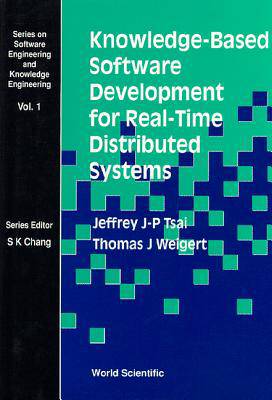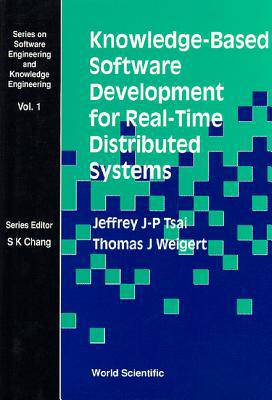
- Afhalen na 1 uur in een winkel met voorraad
- Gratis thuislevering in België vanaf € 30
- Ruim aanbod met 7 miljoen producten
- Afhalen na 1 uur in een winkel met voorraad
- Gratis thuislevering in België vanaf € 30
- Ruim aanbod met 7 miljoen producten
Zoeken
Knowledge-Based Software Development for Real-Time Distributed Systems
Jeffrey J P Tsai, Thomas J Weigert
€ 139,95
+ 279 punten
Omschrijving
The interplay of artificial intelligence and software engineering has been an interesting and an active area in research institution and industry. This book covers the state of the art in the use of knowledge-based approaches for software specification, design, implementation, testing and debugging. Starting with an introduction to various software engineering paradigms and knowledge-based software systems, the book continues with the discussion of using hybrid knowledge representation as a basis to specify software requirements, to facilitate specification analysis and transformation of real-time distributed software systems. A formal requirements specification language using non-monotonic logic, temporal logic, frames and production systems for new software engineering paradigms (such as rapid prototyping, operational specification and transformational implementation) is also discussed in detail. Examples from switching and other applications are used to illustrate the requirements language. Finally, the development, specification and verification of knowledge-based systems are investigated.
Specificaties
Betrokkenen
- Auteur(s):
- Uitgeverij:
Inhoud
- Aantal bladzijden:
- 236
- Taal:
- Engels
- Reeks:
- Reeksnummer:
- nr. 1
Eigenschappen
- Productcode (EAN):
- 9789810211288
- Verschijningsdatum:
- 1/11/1993
- Uitvoering:
- Hardcover
- Formaat:
- Genaaid

Alleen bij Standaard Boekhandel
+ 279 punten op je klantenkaart van Standaard Boekhandel
Beoordelingen
We publiceren alleen reviews die voldoen aan de voorwaarden voor reviews. Bekijk onze voorwaarden voor reviews.











